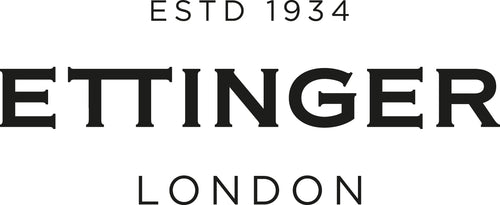We spoke to Mark Cho, co-founder of long-time Ettinger stockist, The Armoury, about his decision to move into menswear, how he has handled the pandemic and everything he has learnt in his years of retail.

Mark Cho is a man who surely needs no introduction. The co-founder of cult menswear emporium The Armoury and the co-owner of Drake’s is perhaps one of the most influential retailers in independent luxury menswear. In a 10 year timeframe, he’s built The Armoury into an internationally recognised menswear brand with no less than four palatial stores in Hong Kong and New York City, and he’s accrued no small amount of learnings along the way. Here are just a few…
Let’s start at the beginning, what led you to co-found The Armoury?
It was the combination of an almost lifelong passion for tailored clothing and being in the right place at the right time. My co-founder Alan See was a long-time menswear lover too, and we reached a point in life where we felt like there was an opportunity to try and open a little men’s store in Hong Kong. Alan and I met on Style Forum and started hanging out. At the time I was doing some part-time work at WW Chan [a local bespoke tailor] and one day out of the blue we both went through some changes in our personal circumstances in quick succession. So, basically, we were freed up. We had this little window of opportunity to do something in the world of tailoring together, so we just took it.

The Armoury is now 11 years old and counting. What’s it been like helming a menswear emporium for all this time?
It’s been quite wonderful, actually. We’ve been through a lot of slow and steady growth over the years and I’ve really enjoyed working with different creative people. It’s been fascinating just to figure out how to manage people, and work with people, and get the best out of everybody – and eventually have a view on what your company should be. I never really truly understood what was meant by ‘company culture’, and so by default I created my own company culture over time. The organisational psychology aspects of running a business is not something that I truly got my head around until I actually had to do it myself.

What are some of the challenges you’ve had to overcome along the way?
Editing is probably one of the biggest things. Figuring out what’s a priority and what’s not when it comes to new product, or when it comes to creativity. Another is how to work with creative people, because really creative people are all very different. For me, that was a personal learning experience too. We don’t really have a single creative lead at The Armoury, we work closely as a team so I had to not take things personally when the guys didn’t get on board with something that I felt strongly about. I also needed to accept that the other guys have great ideas too, and I should really keep my ears and eyes open wherever I can. But, at the same time, someone’s got to make the judgment call in the end. It’s a tricky balance to get right.

What’s the secret to keeping a classic menswear brand relevant today?
Funnily enough, the word I always come back to is ‘relevance.’ From day one I've always loved that word because classic menswear can be so fuddy-duddy – and that’s a great way to alienate a lot of people. You really have to be very careful not to do that. It can never be a: “Well, I’m right, you’re wrong,” sort of proposition. You’ve always got to be in conversation with your customer; trying to respect what he actually needs.
Has men’s style changed over the course of the pandemic?
The honest answer is I don’t know yet. I don’t think the future is as clear as it was. In late 2019, I was thinking “we’re going to see a return to more formal tailoring because casual tailoring has just been around for too long”. But now with COVID, it’s almost like we’ve hit this critical mass where people aren’t really going to go back to some of the old styles of dressing ever again. It’s still hard to say.

What’s coming next for The Armoury, then?
I’m most excited about our next couple of real estate moves. Those will be interesting simply because this year, obviously, real estate has hit a real low point and so there’s a lot of interesting deals to be had. We are, for instance, going to be continuing our New York Westbury store for another year, which I'm very excited about because we’re busy trying to expand into larger spaces that give us some flexibility in terms of events. The events side of retail, I think, is going to be really important as a community-building exercise in the next few years.
And finally, what’s the most important thing you’ve learned as a retailer?
You need to respect the needs of the market and try to keep your own thinking close to what your clients are thinking too – because there’s definitely such a thing as being too far ahead or behind the curve. The key is to move with your clients, without getting too far ahead of them.

Written by Aleks Cvetkovic
Aleks Cvetkovic is a freelance journalist and creative strategist. He writes on men’s style for international publications including the Financial Times, Monocle and Robb Report.



